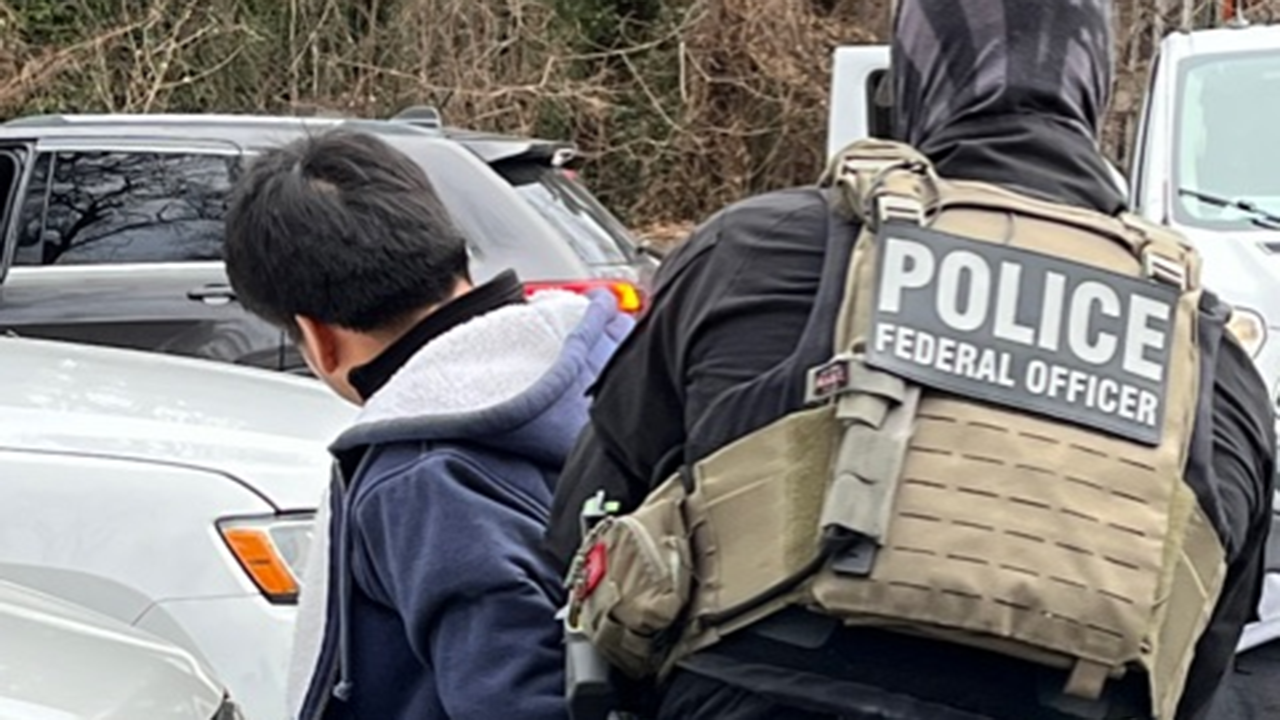Best Shotgun Ammo for Home Defense: A Practical Guide
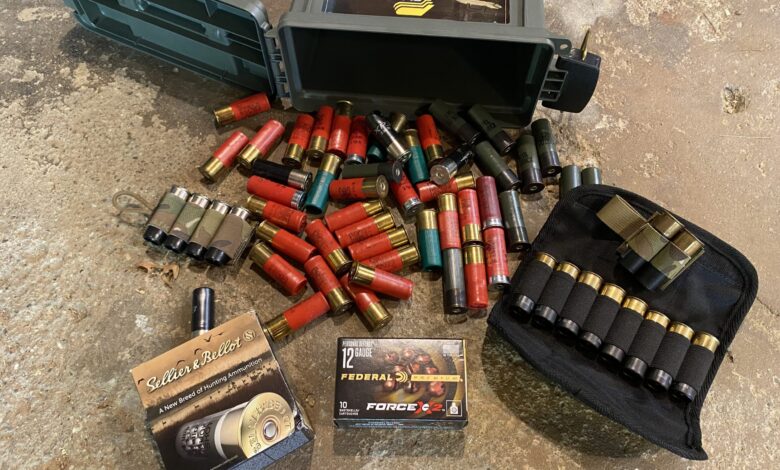
When it comes to home defense, few firearms offer the versatility and stopping power of a shotgun. A well-placed shot can effectively neutralize a threat while reducing the risk of overpenetration—something that’s crucial in a home environment. However, choosing the right shotgun ammo for home defense isn’t as simple as grabbing the first box off the shelf.
Should you go with buckshot, slugs, or birdshot? What’s the difference between 00 buckshot and No. 4 buckshot? Do reduced-recoil shells matter? These are important questions that impact not only effectiveness but also your safety and that of your loved ones.
Buckshot: The Gold Standard for Home Defense
When it comes to shotgun ammunition for home defense, buckshot is the undisputed king. It strikes the right balance between power, pattern density, and penetration, making it the preferred choice for law enforcement, military personnel, and civilians.
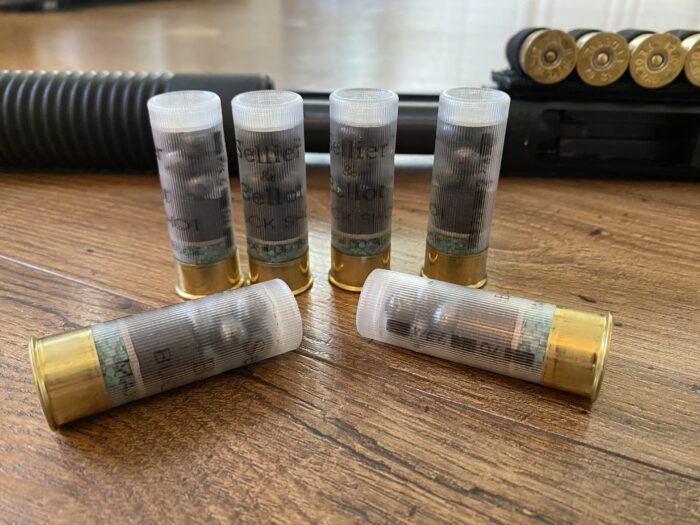
Why Buckshot?
Buckshot consists of multiple large pellets (typically .24” to .36” in diameter) packed into a single shell. When fired, these pellets spread out slightly, increasing the likelihood of hitting the target while still maintaining enough energy to neutralize a threat effectively.
The key advantages of buckshot for home defense include:
✅ Stopping Power – The sheer energy transfer of multiple large projectiles hitting simultaneously makes buckshot devastating at close range.
✅ Reduced Overpenetration Risk – Compared to slugs, buckshot is less likely to travel through multiple walls, making it a safer option in home environments.
✅ Pattern Density – A tight pattern ensures that most pellets hit the intended target, increasing effectiveness.
However, buckshot isn’t perfect. Here are some potential downsides:
❌ Recoil – Standard buckshot loads can produce significant recoil, which may be challenging for smaller-statured shooters or those unfamiliar with shotguns.
❌ Spread at Distance – While buckshot patterns remain tight at close range, they begin to spread significantly past 15-20 yards, which could lead to stray pellets missing the target in larger homes.
Best Buckshot Loads for Home Defense
If you’re considering buckshot, not all loads are created equal. Here are some of the top-performing buckshot options for home defense:
1️⃣ Federal LE FliteControl 8-Pellet Reduced Recoil 00 Buck – This load features the FliteControl wad, which keeps the pattern extremely tight, even at longer distances. It’s a favorite among law enforcement and is widely considered one of the best home defense loads available.
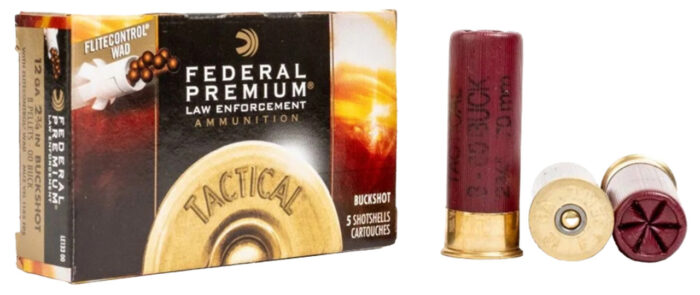
2️⃣ Hornady American Gunner 00 Buckshot – Similar to Federal’s FliteControl, this load uses the VersaTite wad to maintain a tight pattern, ensuring that all pellets land on target.
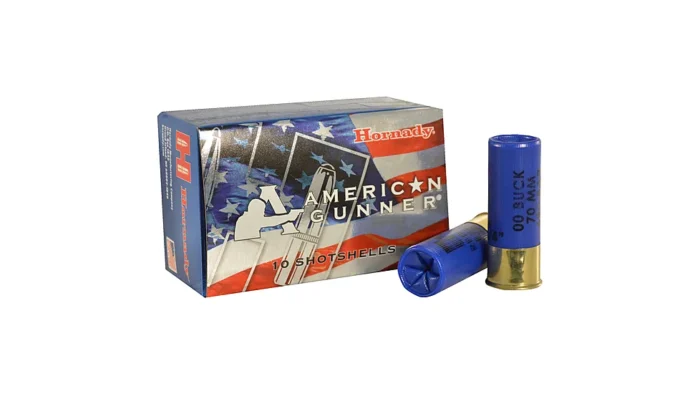
3️⃣ Winchester Super-X No. 1 Buckshot – While not as common as 00 buckshot, No. 1 buck provides more pellets per shot (typically 16 vs. 8-9 for 00 buck), which increases overall impact while still penetrating deeply enough to stop a threat.
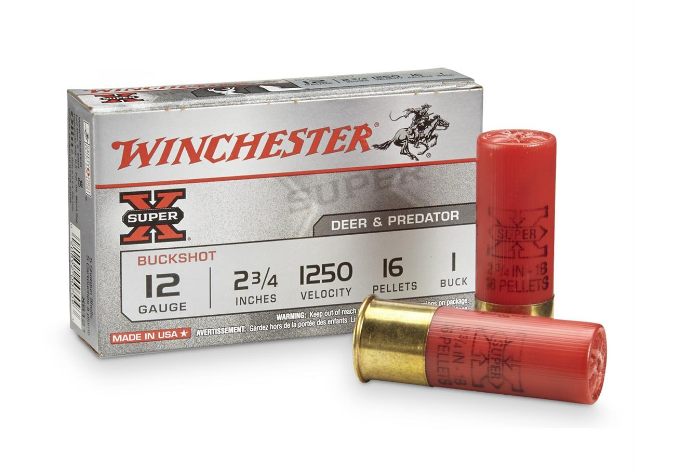
Slugs: Maximum Stopping Power, But at a Cost
If buckshot is the gold standard for home defense, slugs are the heavy hitters. A shotgun slug is a single, large projectile that delivers devastating stopping power, capable of neutralizing a threat with one well-placed shot. However, this power comes with some drawbacks that make slugs a less-than-ideal choice for most home defense scenarios.
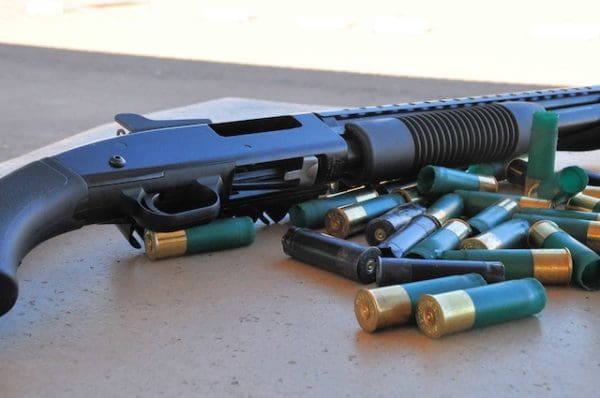
Why Consider Slugs for Home Defense?
Slugs are designed to deliver extreme force, making them useful in situations where maximum penetration is necessary. Some advantages include:
✅ Incredible Stopping Power – A typical 12-gauge slug weighs one ounce (437 grains) and hits with nearly 2,500 foot-pounds of energy—far more than any handgun or rifle round.
✅ Greater Accuracy at Longer Distances – Unlike buckshot, which spreads, slugs travel in a straight line, making them highly accurate at extended ranges.
✅ Barrier Penetration – If you need to shoot through barriers (like a car door or thick walls in a rural setting), slugs will do the job.
Why Slugs May Not Be Ideal for Home Defense
Despite their advantages, slugs have some serious drawbacks for indoor defensive use:
❌ Overpenetration Risk – A slug can easily pass through multiple walls, increasing the risk of hitting unintended targets. If you live in an apartment or a suburban home, this is a major concern.
❌ Heavy Recoil – Even reduced-recoil slugs kick significantly harder than buckshot, making follow-up shots more difficult, especially for smaller shooters.
❌ Less Margin for Error – Unlike buckshot, which spreads and increases hit probability, a slug requires precise aiming to be effective. A miss could be catastrophic.
Best Slug Loads for Home Defense
If you decide to use slugs for home defense, these are some of the best options:
1️⃣ Hornady American Gunner Reduced Recoil 1 oz. Rifled Slug – A good option for those who want slug performance with less recoil, though it’s still powerful.

2️⃣ Federal Tactical Truball Low Recoil Slug – A law enforcement favorite, this slug is designed for controlled expansion to minimize overpenetration.
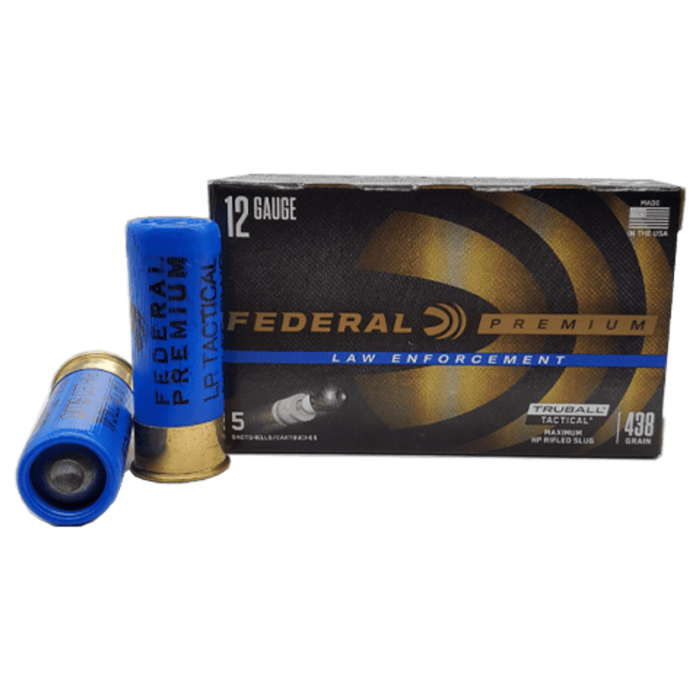
3️⃣ Winchester PDX1 Defender Slug – A segmented slug that breaks apart upon impact, reducing the risk of overpenetration while still delivering devastating stopping power.
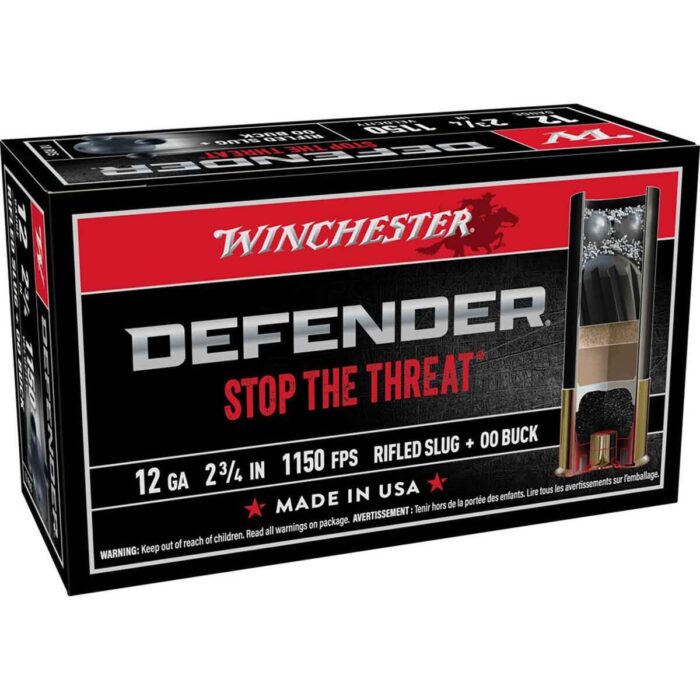
Birdshot: A Risky Gamble for Home Defense
Birdshot is often suggested as a home defense option by those who assume its smaller pellets will prevent overpenetration while still being lethal at close range. While this logic may seem sound, birdshot is not a reliable choice for stopping a determined attacker.

Let’s break down the pros and cons of using birdshot for home defense.
Why Some People Consider Birdshot for Home Defense
Birdshot consists of small, lightweight pellets designed for hunting birds and small game. It has a few perceived advantages:
✅ Less Overpenetration – Since birdshot pellets are small and light, they tend to lose energy quickly, reducing the risk of going through multiple walls.
✅ Lower Recoil – Birdshot produces less felt recoil than buckshot or slugs, making it easier to control, especially for smaller shooters.
✅ Higher Pellet Count – A single shell can contain hundreds of pellets, creating a dense spread at close range.
Why Birdshot Is a Poor Choice for Home Defense
Despite these advantages, birdshot has serious shortcomings when it comes to stopping a threat:
❌ Insufficient Penetration – FBI ballistic testing suggests that defensive ammunition should penetrate at least 12 inches in ballistic gel to reach vital organs effectively. Birdshot typically fails to meet this standard, especially when the attacker is wearing heavy clothing.
❌ Risk of Only Superficial Wounds – At very close range (under 10 feet), birdshot may create a large, nasty wound. However, if the attacker is farther away, the small pellets lose energy rapidly, resulting in painful but non-lethal injuries—potentially allowing the threat to continue attacking.
❌ No Law Enforcement or Military Adoption – Unlike buckshot and slugs, no serious self-defense experts or agencies recommend birdshot for defensive use.
Birdshot as a Last Resort
If birdshot is all you have, it’s certainly better than nothing. In this case, you should use the largest birdshot size available, such as:
1️⃣ #4 Birdshot – The largest common birdshot size, but still marginal for stopping threats.
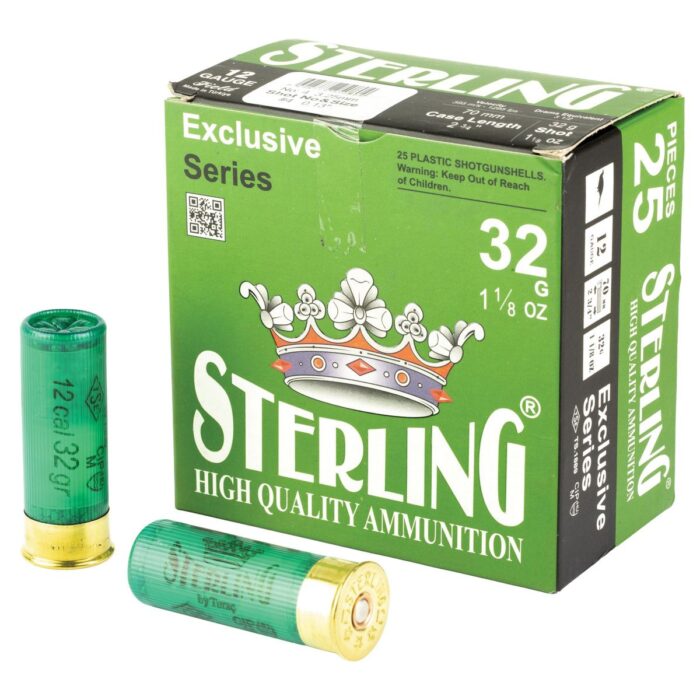
2️⃣ BB or BBB Shot – Slightly larger than #4, providing slightly better penetration, but still far inferior to buckshot.

If you’re set on using birdshot, turkey loads (such as Winchester Super X #5 Shot) offer a denser and harder-hitting pattern than typical birdshot, but they still pale in comparison to buckshot or slugs.
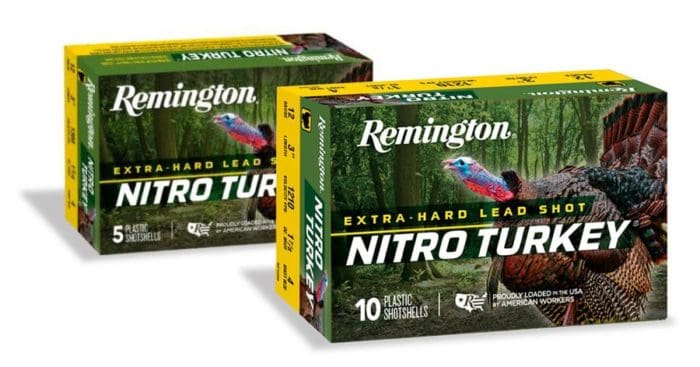
Final Thoughts: Pick the Right Ammo for Your Situation
Choosing the right shotgun ammo for home defense comes down to balancing stopping power, penetration, and recoil control.
- Live in a suburban or urban home? Stick with 00 buckshot with FliteControl or VersaTite wads for tight patterns and reduced overpenetration.
- Using a semi-auto shotgun? Make sure to select full-powered buckshot to ensure proper cycling.
- Concerned about recoil? Reduced recoil buckshot provides effective defense while improving shot control.
- Live in a rural area? Slugs might be an option, but stick to low-recoil or segmented slugs to avoid excessive penetration.
At the end of the day, training matters as much as your ammo choice. Pattern your shotgun with your chosen load, practice your shooting fundamentals, and ensure you’re confident handling your firearm in a high-stress scenario.
What’s your go-to home defense load? Let us know in the comments below!
Need ammo for home defense? Check out Ammo To Go, the ammunition retail sponsor of TTAG gun reviews.
Product and gun reviews are performed independently and product mentions made based on the quality of the product and value of interest to gun owners. However, when you buy through links on our site, we may earn a commission to help support the costs of operating the site and keeping it free for our visitors.



